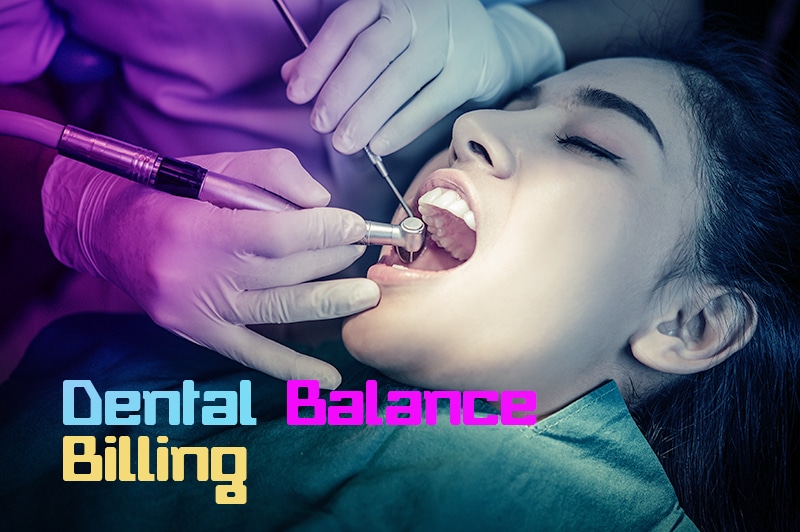Dental insurance billing is extremely complex, with constantly changing codes, payer rules and regulations, and HIPAA guidelines. Even a minor error can have a significant impact on dental practice revenue. That’s why many dentists are choosing to partner with a dental billing company to manage their claim submission process. These companies have experts on board who can help you ensure accurate coding and billing and file accurate claims to collect maximum reimbursement. Their dental insurance verification specialists will also work with you to help your patients understand their insurance coverage and responsibility, including dental balance billing. In fact, understanding how balance billing works is important for patients to make the most of their benefits.
Balance Billing Defined
The amount that insurers pay a provider is almost always lower than what the provider charges for treatment. Balance billing happens in situations when the patient is treated by an out-of-network provider. Dental balance billing occurs when the dentist’s fee for a certain service exceeds the patient’s plan’s allowed amount, and the dentist bills the patient for the difference.
In-network vs. Out-of-network Healthcare Providers
Balance billing is allowed if the dentist is not in the member’s insurance network. Providers who are not in-network cannot balance bill the patient. Knowing the difference between in-network and out-of-network providers is necessary to understand what balance billing means.
A provider network is a group of physicians, dentists and other providers who are contracted by an insurance company, and provide medical care to those enrolled in plans offered by that insurance company. Providers who have contracted with a health insurance plan to provide care to its members are called “network providers” or “in-network providers”.
In-network providers agree to accept the network’s negotiated amounts for procedures they perform. They may not charge or bill a patient for the difference between the actual cost of treatment and the maximum amount allowed by the insurer. In-network providers should submit claims to the insurance company on behalf of the member.
Some insurance plans cover out-of-network care. Out-of-network providers are those who have not signed up to participate in any agreement with a particular provider network. As out-of-network providers have not contracted with the insurer to accept the health insurance plan’s negotiated fees, they can usually charge market rates for services they render.
This means that a dentist who has not signed up to participate in a plan’s network may charge or bill an enrollee for the balance of charges that are due or the amount not approved by the insurance company.
Point to note : Billing a patient for amounts applied to their deductible, coinsurance, or copay is not balance billing. Deductibles, coinsurance, and copays are examples of cost sharing in which both the patient and their health insurance company pay part of the patient’s medical expenses. Cost sharing is pre-determined by the patient’s benefit plan.
Dental Balance Billing Example
Dental plans usually cover 100% of preventive care, such as annual or semiannual office visits for cleaning, sealants and X-rays. Suppose the customary fee of a procedure in the preventive care category is $100 and the insurance plan approves $80 for it. An in-network dentist cannot bill the patient for the $20 difference between the insurance plan’s approved fee and the higher fee. An out-of-network dentist can balance bill the patient up to their full fee and collect the $20 difference from them.
What Patients Should Do
While patients are usually aware about their co-pay, deductible, and co-insurance, balance billing often comes as a complete surprise to them. Though the No Surprises Act that came into effect in January 2022 provides patients with federal protection from unexpected out-of-network medical bills, the American Dental Association (ADA) clarified that the law’s protections do not affect private dental offices because dental benefits are excepted benefits. Patients should always focus on getting treatment from a participating network dentist to maximize their out-of-pocket savings.
Established providers of dental billing services help practices streamline and optimize the dental billing process. In addition to dental billing and coding experts, they have insurance verification experts who will confirm a patient’s insurance details and eligibility to receive medical care services. Verifying eligibility also ensures that patients are aware of their financial responsibility. By being better informed about balance billing and how far they can rely on their insurance coverage, patients can better navigate the process of seeing out-of-network provider.




